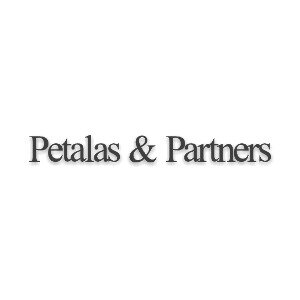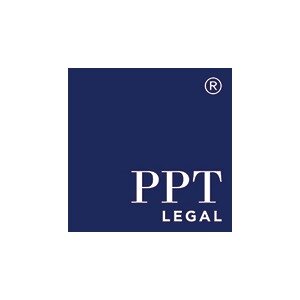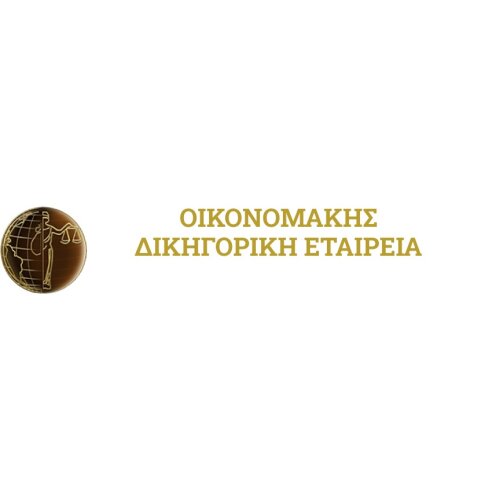Best Sanctions & Export Controls Lawyers in Piraeus
Share your needs with us, get contacted by law firms.
Free. Takes 2 min.
List of the best lawyers in Piraeus, Greece
About Sanctions & Export Controls Law in Piraeus, Greece
Sanctions and export controls law covers regulations that restrict or control the movement of goods, services, technology, and currency across borders, often for reasons of national security, foreign policy, or international commitments. In Piraeus, Greece, due to the city's significant status as a global shipping and trade hub, compliance with local, European Union, and international sanctions and export controls is essential for individuals and companies involved in maritime, shipping, and international commerce activities. The laws are designed to ensure that businesses do not inadvertently violate trade prohibitions, particularly those concerning targeted countries, entities, or goods.
Why You May Need a Lawyer
Legal assistance is often essential in the field of sanctions and export controls because these laws are complex and can carry serious penalties for violations. Common situations where a person or business in Piraeus may require legal help include:
- Uncertainty regarding whether a business deal or transaction might breach EU or international sanctions
- Transacting with shipping or freight companies that operate internationally and need to comply with multiple sanctions regimes
- Exporting or importing goods, services, or technology that are controlled or restricted
- Receiving a request from authorities for information regarding compliance with export controls
- Unintentional breach of sanctions leading to investigations or enforcement action
- Ensuring appropriate due diligence in mergers, acquisitions, or joint ventures with international partners
- Responding to or preparing for audits by customs or other regulatory agencies
Local Laws Overview
Greece, as a member of the European Union, implements EU sanctions and export control regulations directly. The Ministry of Foreign Affairs is the main body enforcing sanctions, whereas export controls (including those on dual-use items and military goods) are regulated by the Greek Ministry of National Defence and relevant customs authorities. Key local aspects include:
- Direct enforcement and alignment with EU restrictive measures and embargoes
- Criminal and administrative penalties for breaches, including heavy fines and imprisonment
- Special licensing requirements for export of dual-use goods, arms, or sensitive technologies
- Reporting requirements for suspicious transactions, particularly in banking and shipping sectors
- Frequent updates to sanctioned entities and items by the Greek authorities and the EU Council
For Piraeus-based companies, particular attention should be paid to the implications of sanctions on shipments passing through Greek ports, vessel ownership and registration, and transactions involving parties from countries under sanctions.
Frequently Asked Questions
What are sanctions and export controls?
Sanctions are restrictions imposed by governments or international bodies to limit or prohibit trade with certain countries, entities, or individuals. Export controls refer to laws that regulate the export of specific goods, technology, and services for reasons such as national security or foreign policy.
Who enforces sanctions and export controls in Greece?
Sanctions are primarily enforced by the Greek Ministry of Foreign Affairs, with export controls managed by the Ministry of National Defence and customs authorities. The Bank of Greece also plays a role in monitoring financial compliance.
What are the penalties for violating sanctions in Greece?
Penalties can include criminal prosecution, substantial fines, imprisonment, business restrictions, and loss of export privileges. Both individuals and companies can be held liable for violations.
How does EU law affect sanctions and export controls in Greece?
Greece implements all EU sanctions directly. Regulations issued by the EU Council and Commission are binding on all Greek businesses and individuals, alongside domestic laws.
What types of goods are subject to export controls?
Goods subject to export controls include weapons, military technology, dual-use items (civilian goods with potential military applications), sensitive technologies, and items destined for countries under arms embargoes.
Do shipping companies based in Piraeus need separate export licenses?
Depending on the nature of their cargo and destination, shipping companies may require export licenses, especially for controlled or embargoed goods. Legal guidance is recommended to determine specific licensing needs.
Can a Greek company do business with sanctioned persons or entities?
No, Greek law prohibits doing business with persons or entities listed on EU or UN sanctions lists. Violations can result in severe penalties.
How often do sanctions and export control laws change?
Sanctions and export controls are dynamic and can change rapidly due to international developments. It is crucial to stay updated on current regulations and sanctioned entities.
What should I do if I suspect I have violated export controls or sanctions?
You should immediately seek legal advice. Self-reporting and cooperation with authorities may mitigate potential penalties, but expert legal assistance is vital.
Do I need to conduct due diligence on customers or suppliers outside the EU?
Yes, businesses are expected to conduct robust due diligence on all international counterparties to ensure compliance with sanctions and export controls, including screening against restricted party lists.
Additional Resources
If you need further information or guidance regarding sanctions and export controls in Piraeus, Greece, the following governmental bodies and organizations can be helpful:
- Greek Ministry of Foreign Affairs - Responsible for implementing and updating sanctions lists and regulations
- Greek Ministry of National Defence - Regulates export controls on military and dual-use goods
- Greek Customs Authorities - Provide guidance on controlled goods and licensing
- Bank of Greece - Oversees financial sanction compliance for banks and financial institutions
- European Union Sanctions Map - For up-to-date information on EU-wide sanctions
- Piraeus Chamber of Commerce and Industry - Offers resources for businesses involved in international trade
Next Steps
If you believe you are affected by sanctions or export controls regulations in Piraeus, Greece, or you are unsure about your obligations, the following steps are recommended:
- Gather all relevant information about your transactions, customers, and suppliers
- Check current EU and Greek sanctions lists to assess your risk
- Consult an experienced legal professional specialized in sanctions and export controls law
- Implement internal compliance policies for regular screening and audits
- If under investigation or facing enforcement action, act promptly and seek legal representation
By taking these steps, you can reduce your legal risk and ensure that your business activities in Piraeus remain compliant with all relevant sanctions and export control laws.
Lawzana helps you find the best lawyers and law firms in Piraeus through a curated and pre-screened list of qualified legal professionals. Our platform offers rankings and detailed profiles of attorneys and law firms, allowing you to compare based on practice areas, including Sanctions & Export Controls, experience, and client feedback.
Each profile includes a description of the firm's areas of practice, client reviews, team members and partners, year of establishment, spoken languages, office locations, contact information, social media presence, and any published articles or resources. Most firms on our platform speak English and are experienced in both local and international legal matters.
Get a quote from top-rated law firms in Piraeus, Greece — quickly, securely, and without unnecessary hassle.
Disclaimer:
The information provided on this page is for general informational purposes only and does not constitute legal advice. While we strive to ensure the accuracy and relevance of the content, legal information may change over time, and interpretations of the law can vary. You should always consult with a qualified legal professional for advice specific to your situation.
We disclaim all liability for actions taken or not taken based on the content of this page. If you believe any information is incorrect or outdated, please contact us, and we will review and update it where appropriate.

















